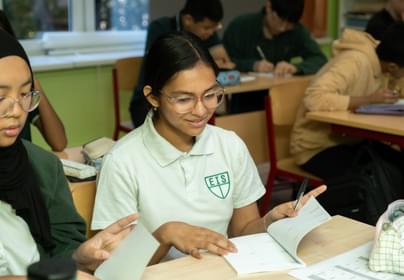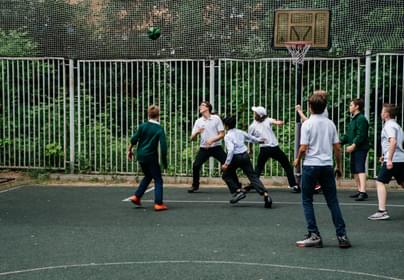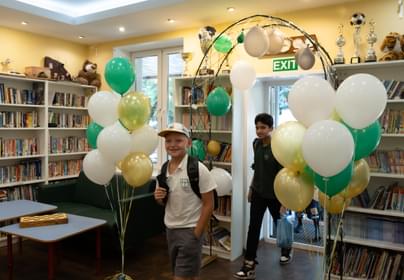RUSSIAN
Year 8 has been continuing to work hard in Russian class this week. We have been learning about Morphemics and Word building. Each student has been given a word to analyze and then they were also given a chance to explain and "teach" the others in class, using their words as an example. It was a challenging exercise, but everyone did great. Well done Year 8! Keep up the hard work!
Students in the Year 9 Russian as a second language class have prepared a presentation. They researched a location they find interesting and historically important. Students chose locations such as Red Square and the Colosseum. This task allowed them to practice researching and identifying key information and reinforcing their ability to communicate in Russian.
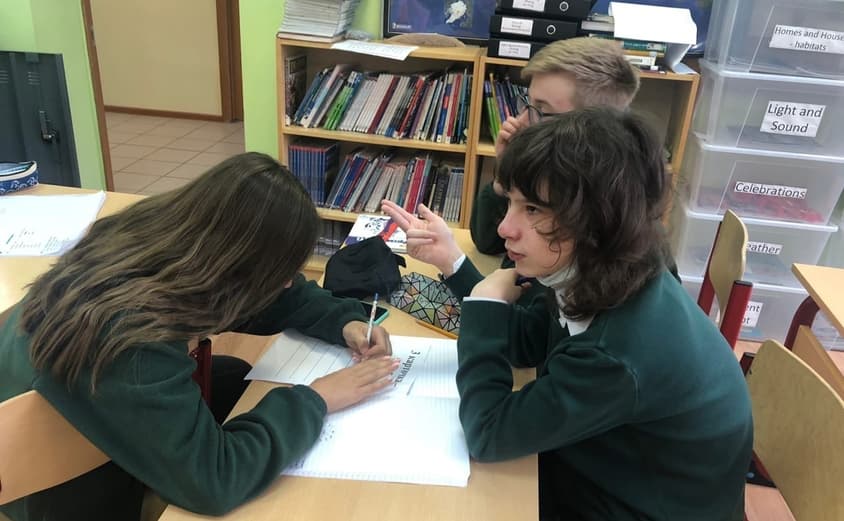
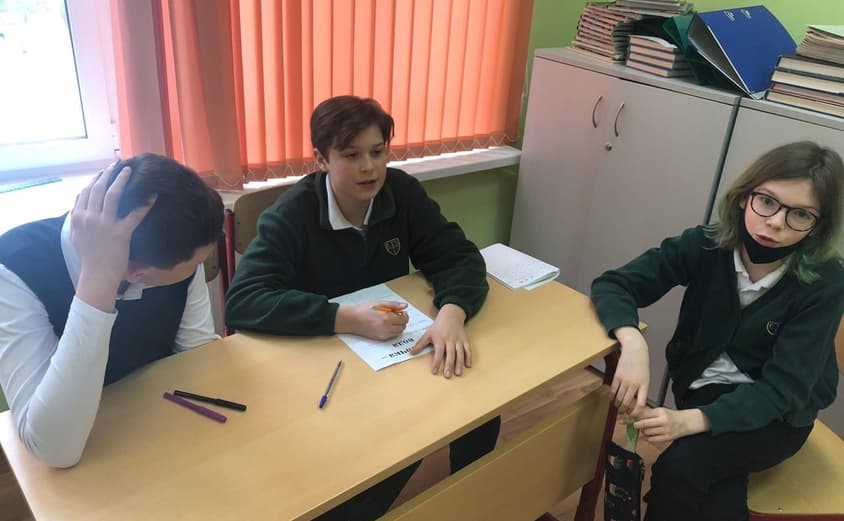
SCIENCE
Year 8 studied acids and their reactions with metals. Students practised writing worded chemical equations and then had a practical session on that.They were given four different metals – calcium, zinc, magnesium and copper. Then they observed how these metals reacted with hydrochloric acid. The students finally made a conclusion that metals have different reactivity: some react fast, but some metals don’t react at all! All students worked with enthusiasm in small groups of four-five and it was good to see them becoming more skillful with lab equipment.
Year 10 studied acids and pH scale. We talked about acids and the way they dissociate in water. Then the idea of Ph was introduced and we discussed the difference between acidic, neutral and alkaline solutions. We also looked at various indicators, such as phenolphthalein, methyl-orange, litmus and universal indicator. The students were given three substances and (an acid, an alkali and water) and they were checking the colours produced by the indicators in these three substances. In the end of this session the students put the data they obtained in their books. The colours produced by the indicators were surprisingly different and the class enjoyed working with them. Well done everyone!
Year 11 studied crude oil and the uses of fractions it is separated into – gasoline, kerosene and some others. We also discussed an important industrial process – catalytic and thermal cracking. The class practised writing chemical equations of cracking of various alkanes. Some students were giving very good contributions to our class discussion about crude oil in general and some alternative types of fuel.
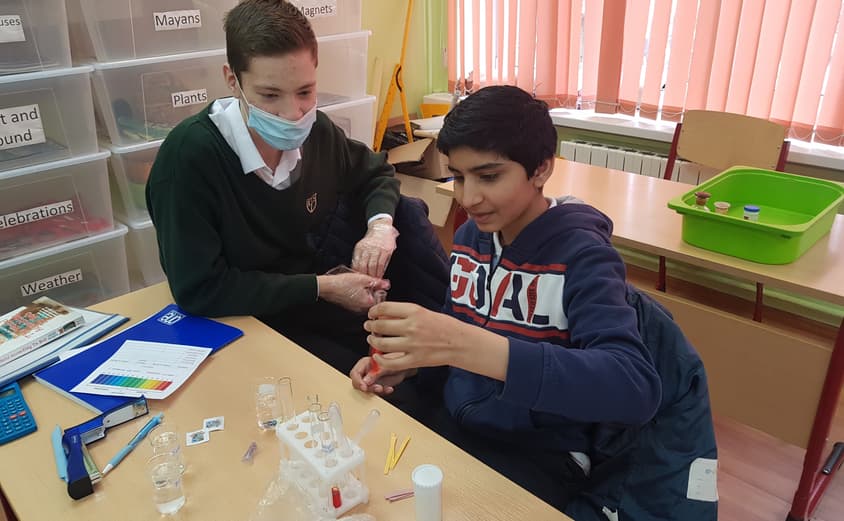
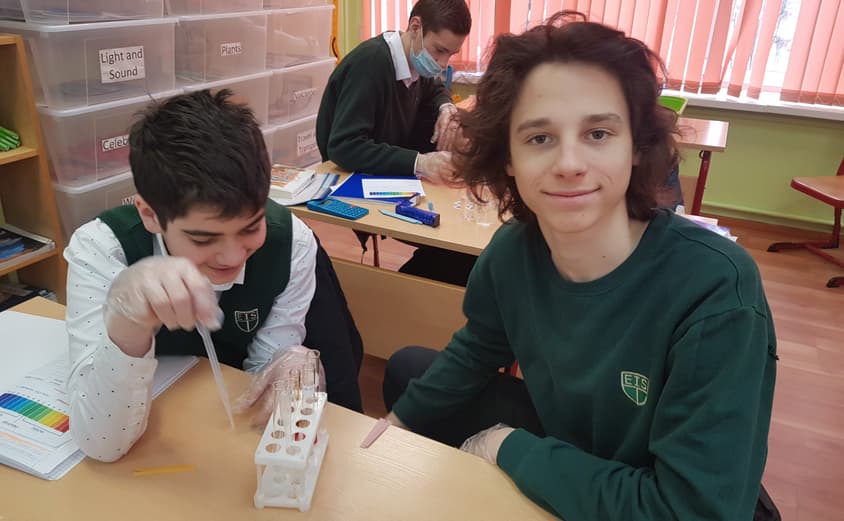
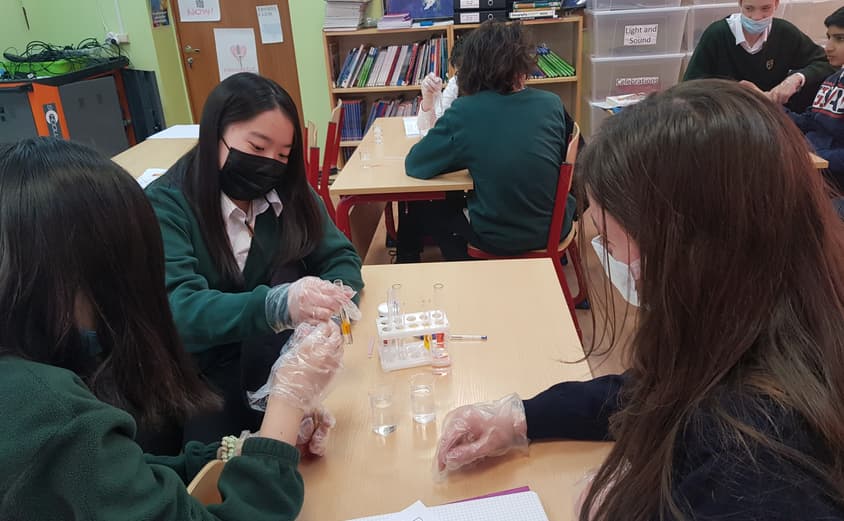
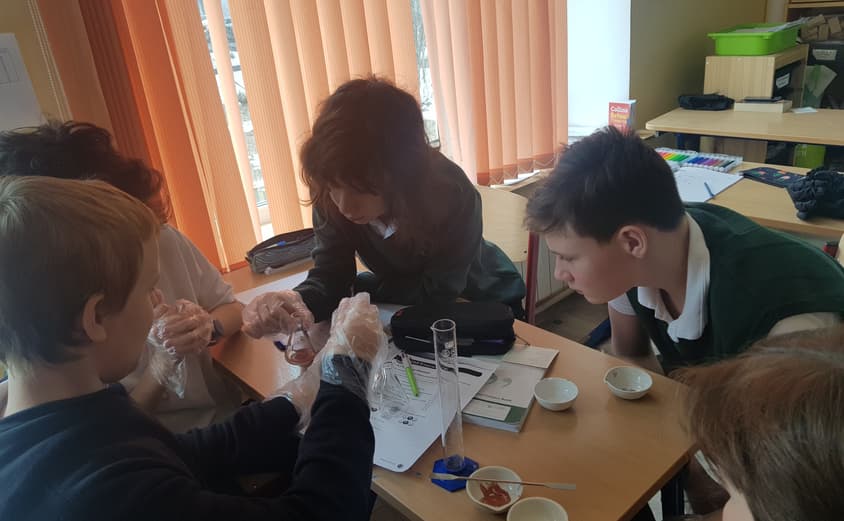
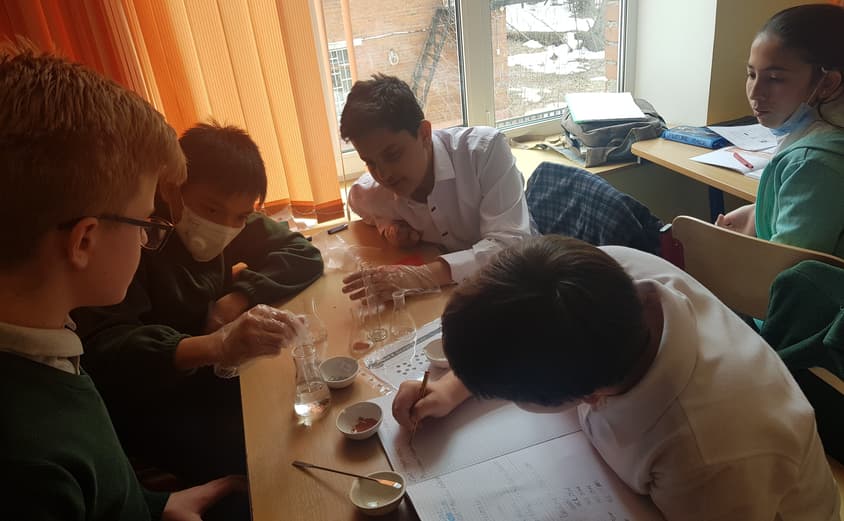
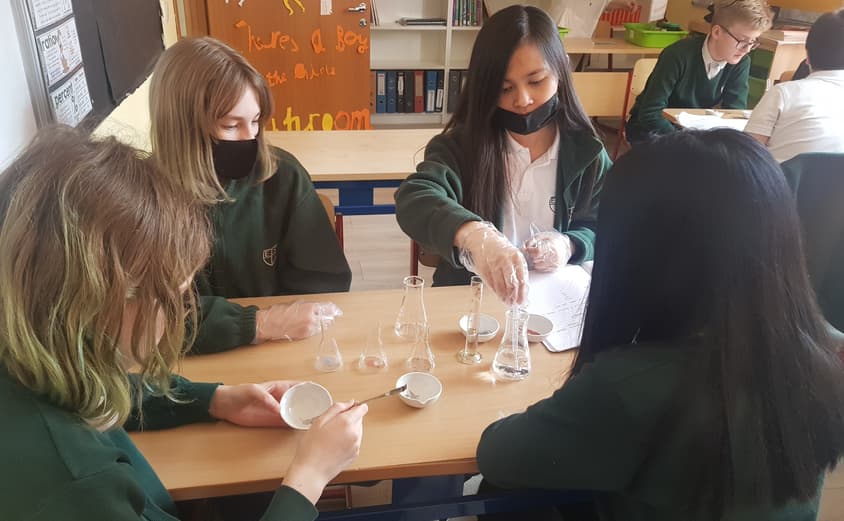
ICT
This week in ICT Year 8 were exploring Hour of Code in Minecraft Education and looking at the various functions used within programming. Year 9 and 7 continued exploring Minecraft Education and Kudo Game lab programming which included exploring sequences, loops, while loops and nested loops. Moreover Year 13 were looking at the latest emerging technologies including quantum cryptography, augmented reality and biometrics.
MUSIC
In Secondary, Year 7 explored the STRINGS, WOODWIND, BRASS and PERCUSSION families of the orchestra. The students learned about features of the conductor of an orchestra.
Year 8 learned to identify musical features and elements of music in a wider range of dance music from different times and places. Students studied the type and style of dance from all over the world.
Year 9 worked on performing existing riffs and ostinatos. This week the students performed the bass line riff from “Sweet Dream” on the keyboards. We explored BASS CLEF and worked on notes score in BASS CLEF.
GEOGRAPHY
Year 7
In this week, our Year 7 Geography students started the investigation on the elements of weather and they have demonstrated how to calculate temperature range and temperature mean. In addition, students have managed to use realia and visual aids to name instruments like thermometers, wind vane and hygrometer, which are used to measure the elements of weather.
Year 8
Over the past few weeks, students have been learning about Tourism. This week they watched a You Tube video on the Ecotourism and impacts of tourism in the environment. Furthermore, students have had a discussion on the roles of youth and tourist in protecting the environment for the benefit of presence and future generations. As term, three drawn to close Year 8 student did the Geography test in order to assess their knowledge and skills on what they have learnt.
Year 9
Year 9 have been learning about volcano and how plate tectonic can cause the volcanic eruptions. Students have also learned about how volcanic eruption modify and create different landforms such as crater and caldera. Moreover year 9 students have done a test covering two topics that they have leant.
Year 10
This week year 10 students have explore the concepts of the threats and opportunities of the river. Students acquired in-depth knowledge and achieved to develop their understanding by reading a Geography textbook and watching a video on the uses of water from rivers and the threats of the river to human being and properties. Because this is, the last week of term students have done a Geography test that have questions from two topics that they have covered already.
Year 11
After an incredibly successful completion of their mock exams, Year 11 students have had an opportunity to get their Geography mock exam result and do a correction. In addition, this week students have started to learn and develop their geographical skills on map reading and interpretation. Students have demonstrated their understanding on how to calculate distance on a map sheet and using grid references to locate places on the map sheet.
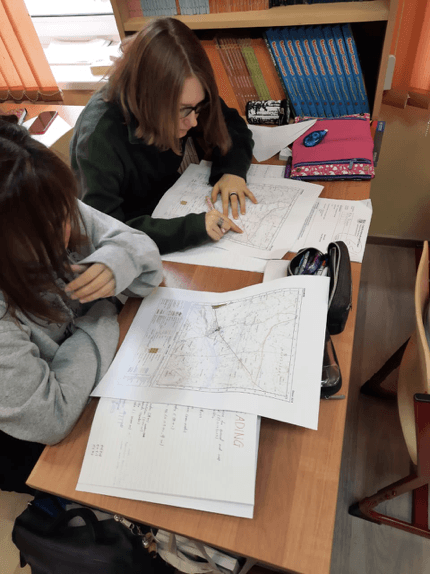
HISTORY
Year 7
This term in Geography, students have been learning about the middle ages church and how Monks and Nuns played a greater role in the church. Students have demonstrated their understanding by writing the diary about the life of Monks and Nuns during middle ages. So far, students have learned about key people in the middle ages like King Henry and Thomas Becket. Lastly but not the least, students have had an opportunity to do a History test this week.
Year 8
Students from Year 8 had the opportunity to apply their learning from the last three weeks on British Empire and identified different historical sources in order to comments if British Empire was good or evil to its colonies. Students appreciated the chance relax and remove themselves from all of the distractions now associated with everyday life.
FRENCH
In Year 7 and 8, we spoke about "masculin et féminin" and how to write properly the adjective. We learnt the general rule : we add "e" when the final letter is "s/d/t/é" and the exceptions and how to change an adjective if the ending is "on/onne" or "ien/ienne" etc.
In Year 9, we finished our topic about "Masculin et féminin". Then we spoke about French speaker aroud the world and we watched a video about the French language in Louisiana. You can watch the video here : https://www.youtube.com/watch?v=GOfq0cbgRSI
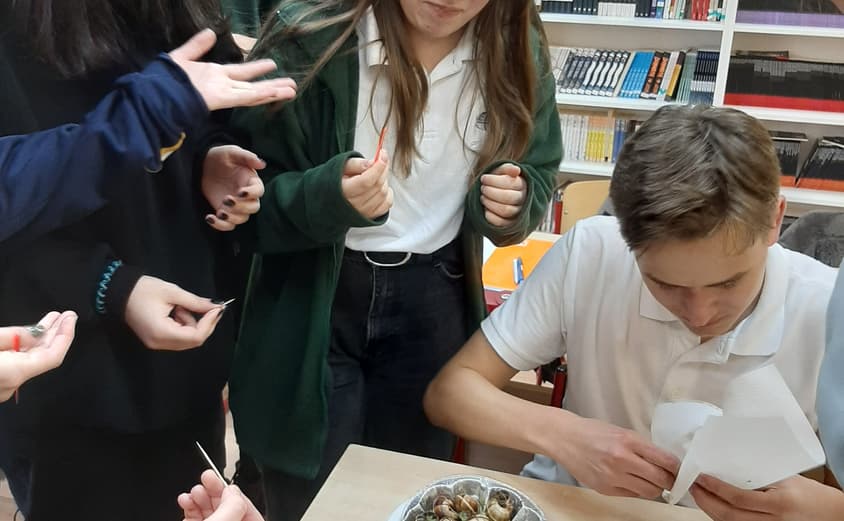
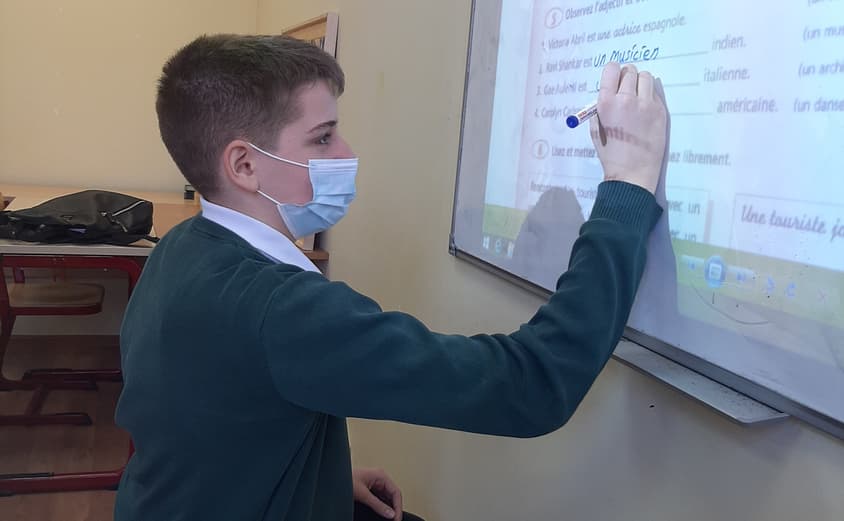
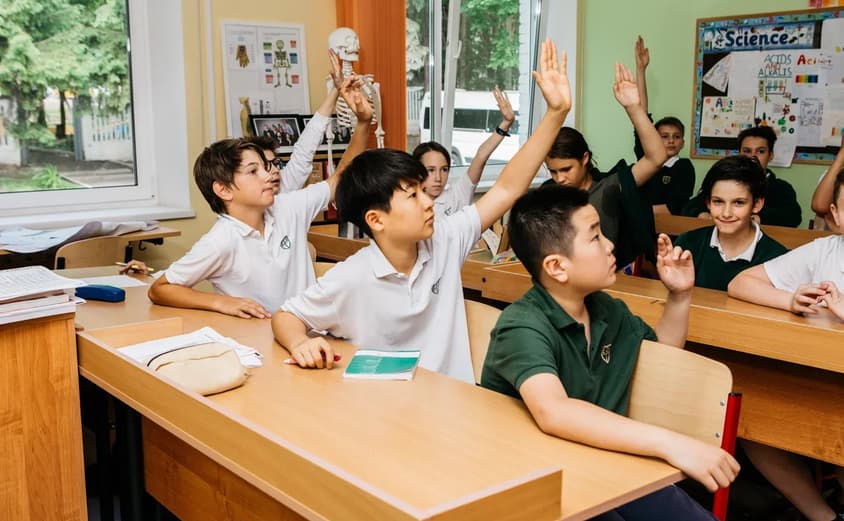
MATH
The Year 9 students have finished topic on Quadratics where they learnt methods of factoring quadratic expressions, how to solve quadratic equations and how real-life situations can be modelled by quadratic equations. They did a test at the end of the topic and wrote a self-reflection on their results.Year 11 students received their mock exam results that showed that there's still a lot of room for improvement...They have been working on correcting their mistakes and realised that proper revision is crucial in order to get good results on the exam. Year 12 students have been studying integration, in particular how to find areas under the curves, area formed by the curve and the x-axis and how to apply trapezium rule to more complex integrals. They had a lot of fun 🙂 Year 13 students have started topic on Vectors and learnt how to apply previously known theorems to solving geometrical questions in vector form. They got familiar with vectors in 3D, coplanar vectors and operations with column vectors.
ENGLISH
This week, students from year groups 11-13 have received feedback on their mock exams. As well as receiving their grades, students have reflected on their answers and considered strategies for future improvement. On the whole I was impressed with the students' results and believe they truly reflect their academic potential. Year 10 have also received feedback on an essay they completed as well as learning about different dramatic techniques used in their play study. Finally, year 9 have been continuing with Sherlock Holmes and learning the skills of extract analysis.
ART


